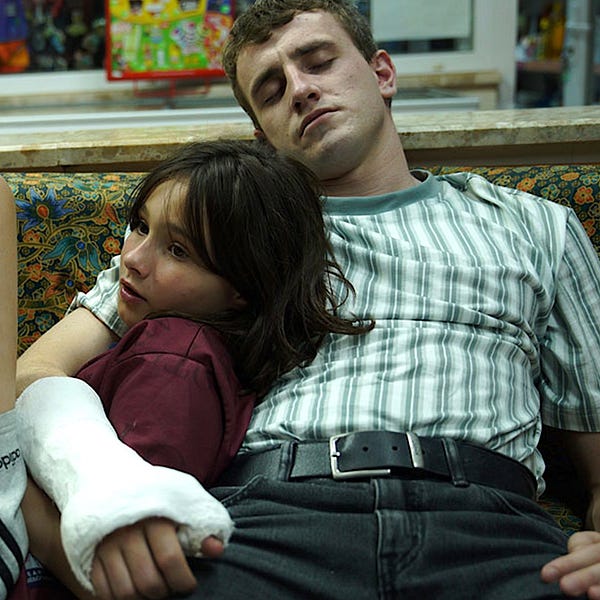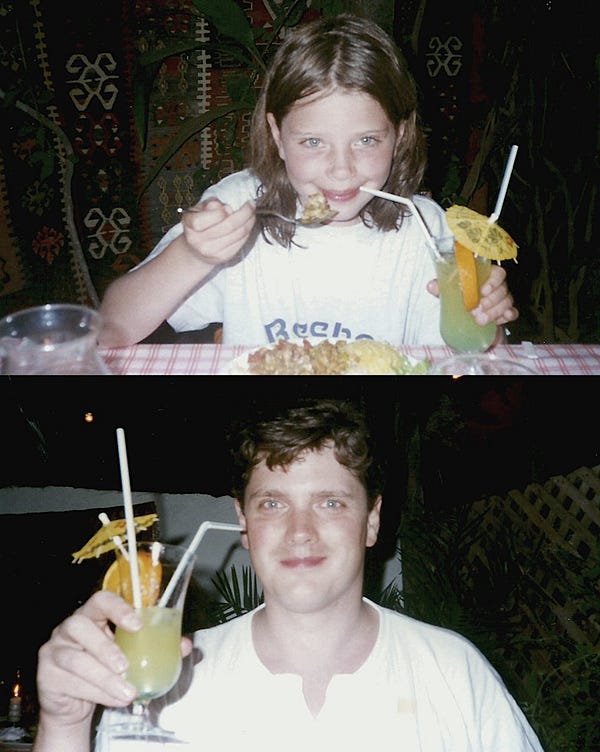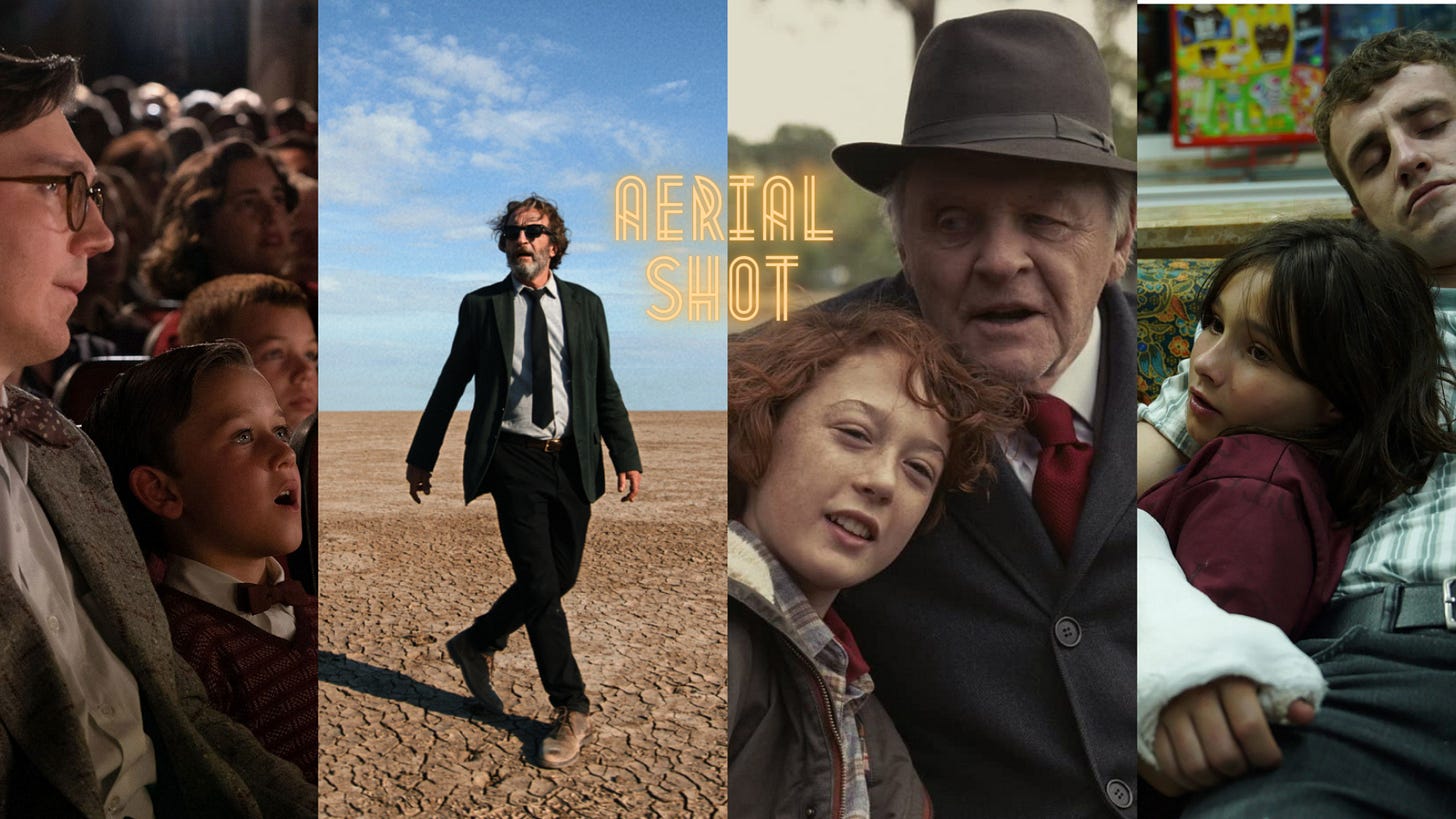This will explain a lot, but sometimes when I have a free night in the city, I’ll look up this website I have saved to memory. I’m not totally sure how I found it, but it’s essentially a rundown of everything in theaters across New York.
On Monday, I had one of those free nights, scrolled through the site and decided to check out Bardo, False Chronicle of a Handful of Truths at the Paris Theater. I was aware of its existence but admittedly knew very little about what it was actually about.
I did not enjoy it.
Alejandro Iñárritu, the multi-time Oscar-winning director, made the vanity picture of all vanity pictures. It’s a dream sequence of a movie that treats itself like it’s already a magnum opus and actively attacks eventual criticisms during its own near three-hour runtime.
I enjoy a movie that attempts to enter the masterpiece canon, but this feels like a therapy session and philosophical plea rambling on and on. Yes, there are intriguing ideas and beautiful shots, but it’s a slog at best and doesn’t pay off on its grand premise.
It didn’t help that the Paris Theater’s seats have negative leeway. I can make it through watching Call Me by Your Name or The Lost Daughter here, but I was losing my mind (and body) during Bardo. What I’m trying to say is that the movie has to be good if it’s going to make my back hurt the next morning.
In short, Bardo is solely for self-importance. It’s a story about Iñárritu’s follies and tribulations without explicitly calling itself a memoir.
Most years will see an example of this in one way or another. Licorice Pizza and Once Upon a Time... in Hollywood are recent examples of this phenomenon without being so grandiose and self-centered. Quentin Tarantino and Paul Thomas Anderson respectively made these films to tell a story but also to dive into a lost version of a California that they idealized.
This year sees a more straightforward version of this type of filmmaking from the aforementioned Bardo to The Fabelmans to Aftersun to Armageddon Time.
All are iterations of the same movie. This isn’t a critique, it’s just interesting. Why now? Why have four different directors at various points in their careers made cinematic versions of an autobiography?
I’m not just asking questions. I have some answers. Or what I think are answers.



Aftersun is my favorite of the four and a vignette from debut director Charlotte Wells. It’s a small story centered on a father and daughter at a crossroads of sorts while on vacation at a Turkish resort. It’s cut between the current day and what happens in Turkey and feels like something that Wells needed to get off her chest.
I’m sure that's what’s behind this movie being made, but the other reason is that it doesn’t seem too expensive to make. This isn’t a slight of any sort. Making a movie this small this compelling is a masterwork. Returning from a pandemic, there’s a need to focus on what can be made with relatively small resources. Wells clearly has the least of that at her disposal but all of these films center on people talking in rooms. There’s less camera chicanery; well, maybe not for Bardo but that’s Iñárritu’s calling card.
All of these movies are therapeutic in one way or another. Each centers on small (but sentimentally huge) moments during each of their childhoods, and that’s really where the connections take flight.
Each of these films feels like mementos from the peak-covid era. While stuck in our houses, we all went through existential crises in one way or another, and these four movies feel like creators reconciling with what they went through. As their first films post covid, each one feels like anxiety-induced products that came together from too much time stuck in one place thinking more than usual. James Gray, Steven Spielberg and Iñárritu have all inserted the themes of abandonment, familial tension and coming-of-age drama into their films before but never this explicitly.
This isn’t just me making this correlation between the movies as James Gray has been asked just as much on his round of interviews during this press cycle. He’s definitely admitted to seclusion being a prime factor behind these movies, but he has another (depressing) answer to what’s behind all of this.
Gray is as cynical as anyone when it comes to the future of movies and he’s admitted to wanting to make this one since it may be his last chance to do so. In such a blockbuster-dominated age, it’s tough to know when your next chance will be to make such a personal movie, so anyone that’s given the opportunity will take it in a second. I hope this isn’t the case as there’s something inspirational and relatable to seeing avatars of the filmmakers fuck up time and time again, but you never really know.
The optimistic perspective is that even amidst the money-centric cinematic focus, they’re still making these movies. Whether it be because Hollywood believes in what these directors can do or solely for an awards push that can help the bottom line, four different directors of various statuses were able to make personal works influenced by their own upbringing. I didn’t love all of them, but I’d rather this than most of what we get in a given year.
And you know what … I’ll take it.






